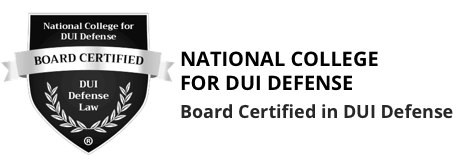If you have been charged with a homicide in Houston, Texas, contact Houston homicide defense attorney Mark Thiessen at 713.864.9000 to schedule your free case evaluation. Mark is available 24 hours a day, 7 days a week.
Fighting for Your Freedom, Rights & Future
The role of a Houston homicide defense attorney is to ensure that the tragedy of a lost life isn’t furthered by botched investigations, false assumptions, and unjust convictions.
And as anyone who has recently been accused of homicide knows, defending the unjustly accused is an uphill battle. While the law holds sacred the principle of a defendant being “innocent unless proven guilty,” those accused of violent crimes often feel “proven” guilty in the eyes of the public long before an actual conviction.
If you or someone you love has been wrongly accused of homicide or murder, manslaughter, attempted murder, or other types of violent crimes, it’s imperative that you seek aggressive defense from an experienced Houston homicide defense attorney — and fast.
What is considered criminal homicide in Houston, Texas?
Criminal homicide in Texas is defined in Chapter 19 of the Texas Penal Code as occurring when someone: “intentionally, knowingly, recklessly, or with criminal negligence causes the death of an individual.”
Intent plays a major role in most criminal homicide cases. Much depends on the circumstances surrounding the death and whether it was caused by recklessness or negligence as opposed to intentional or knowing acts.
Ultimately, even if the death of someone is accidental and occurs because you did something without considering the dangers or consequences of your actions, you may still receive a criminal homicide charge.
The four types of criminal homicide and their penalties
There are four types of criminal homicide defined under Texas Penal Code, each with varying degrees of punishment. These charges are extremely serious. Individuals charged with any of the four types of criminal homicide should seek representation from a homicide defense lawyer as soon as possible.
1. Criminally negligent homicide
You can be charged with criminally negligent homicide if another person dies as a result of criminal negligence on your part. To clarify this definition, we turn to Section 6.03(d) of the Texas Penal Code. Here, it states that a person’s actions are considered criminal negligent:
“…when he ought to be aware of a substantial and unjustifiable risk that the circumstances exist or the result will occur. The risk must be of such a nature and degree that the failure to perceive it constitutes a gross deviation from the standard of care that an ordinary person would exercise under all the circumstances as viewed from the actor’s standpoint.”
In other words, you can be charged with criminally negligent homicide if your failure to take standard and reasonable precautions resulted in the death of an individual.
Criminally negligent homicide is tried as a state jail felony, which is punishable by 180 days to 2 years in state jail and a fine of up to $10,000.
2. Manslaughter
You can be charged with manslaughter in Texas if you “recklessly” cause the death of an individual. Recklessness, in this context, means roughly that an individual was aware of the potentially lethal consequences of their actions, but disregarded those dangers. Texas does not recognize the difference between involuntary manslaughter and voluntary manslaughter; there is only the charge of manslaughter.
Manslaughter charges are tried as a 2nd degree felony, which is punishable by 2 to 20 years in prison and a fine of up to $10,000.
It’s important to note that the circumstances of a manslaughter case may alter the type of manslaughter charge you face. For instance, those who kill someone as a result of DWI are frequently charged with intoxication manslaughter instead of manslaughter alone.
For more information on the various types of manslaughter, please see our article: The Difference Between Manslaughter, Intoxication Manslaughter, and Vehicular Manslaughter in Texas.
3. Murder charges and penalties in Texas
Individuals can be charged with murder in Texas under three main circumstances:
- When someone intentionally or knowingly causes the death of an individual.
- When someone intends to inflict serious bodily injury, commits an act to that effect, and causes the death of an individual in the process.
- When someone commits (or attempts to commit) another type of felony crime and, in the course of enacting that crime, does something that’s clearly dangerous which results in the death of another individual.
Texas does not take murder charges lightly. The state considers taking the life of another person to be one of the worst possible actions someone can commit, and being convicted of murder can result in a life sentence in prison.
Specifically, most murder charges are tried as a 1st-degree felony, which is punishable by 5 to 99 years in prison and a fine of up to $10,000.
The one main exception to this rule is if you can prove that the murder occurred “under the immediate influence of sudden passion arising from an adequate cause,” in which case the charge may be “bumped down” to a 2nd degree felony (2 to 20 years in prison, and a fine of up to $10,000).
Click here to learn more about common defenses for murder charges.
4. Capital murder charges and penalties in Texas
Texas uses the term capital murder in place of first degree murder. A person can be charged with capital murder if the murder they committed is considered severe. Specifically, individuals can be charged with capital murder in Houston if they are found guilty of committing murder with or under any of the following “heightened” circumstances:
- The person murdered was a peace officer or fireman on active duty
- The person murdered was under the age of 15
- The person murdered was an employee of a prison or penal institution
- The person murdered was a judge, and they were murdered in retaliation to a duty they fulfilled as part of their work in court
- The person murdered was a fellow prisoner in a prison or penal institution and if:
- The act was committed as part of gang activity
- The act was committed by a prisoner who was imprisoned for murder, another capital murder charge, aggravated sexual assault, aggravated kidnapping, or aggravated robbery.
- The murder was committed as part of a burglary, kidnapping, robbery, aggravated sexual assault, arson, obstruction/retaliation, or a terrorist threat.
- More than one murder was committed during a crime or during a series of related crimes.
- The person who commits the murder received or would receive remuneration, i.e. payment. (A hired killer.)
Capital murder charges are tried as capital felonies, which are punishable by death or life imprisonment. The death penalty, though relatively rare, is still a very real and very legal possibility for those charged with capital murder in Texas.
If it cannot be proven beyond a reasonable doubt that an individual has committed capital murder, they may still be charged with murder or any of the applicable types of aforementioned homicide charges.
Collateral damages of a homicide conviction
The collateral damages of a homicide conviction, especially a felony conviction, can and often do extend beyond time spent in prison and fines. To make matters more complicated, these collateral consequences aren’t laid out in one singular Texas statute.
Here is an overview of some of the collateral consequences those convicted of criminal homicide may encounter:
- Loss of civil rights/privileges, including the right to vote, the right to run for or hold a public office, and the right to serve on a jury
- Difficulty securing rights to child custody during or after divorce
- Difficulty finding employment and denial of licensure
- Loss of access to scholarships, funding, and federal assistance
- Suspension of your driver’s license
- A revocation or denial of your passport
- Temporary or permanent loss of your right to a firearm
As you can see, punishment for a criminal conviction such as criminal homicide does not end once you leave life in prison behind you. These additional penalties provide yet another reason why it’s so important to retain an aggressive and experienced Houston homicide defense attorney.
The stringent restrictions individuals face after release from prison have driven many ex-offenders back to criminal actions as a means of survival. These circumstances create a vicious cycle of incarceration. If you are struggling with re-entering public life after serving your time, know that there are communities waiting to welcome you home and help you back on your feet. Please see our article for more information on Resources for Ex-Offenders in Houston.
Types of defenses used by Houston homicide defense lawyers
Just because you have been charged with criminal homicide or murder in Houston doesn’t mean that you don’t have defense options. It is still possible to claim and argue that you either did not commit the murder all, that you killed someone but for a justifiable reason, that the death of the individual was an accident, or another number of possible defenses. We expand on these types of murder or homicide defenses below.
Mistaken Identity
Mistaken identity is one of the leading causes of wrongful convictions. It means, simply, that the wrong person has been accused, charged, and taken to trial for the crime. Mistaken identity can occur when issues with eye-witness testimony arise, especially when a significant amount of time has elapsed since the incident.
For this type of defense, your Houston homicide defense attorney will likely try to establish an alibi for you at the time of the crime. They may also question the lack of evidence or quality of the evidence that purportedly places you at the scene of the crime.
Justifiable defenses: Self-defense, defense of others, and exercise of duty:
Murder cases are rarely if ever cut-and-dry, and this is especially true of those involving plaintiffs arguing that they had to kill someone as a matter of self-defense, defending others around them, or to protect themselves on the job (such as policework).
However, if you and your Houston homicide defense attorney wish to put forward self-defense or other like actions as your defense, you will need to prove that your actions were proportional to the threats you or others received. Namely, that you were under conditions in which it was reasonable to assume that you or others around you were facing death or severe bodily injury.
Accidents and reducing culpability
Sometimes, it’s clear that your actions almost certainly led to the death of an individual, but the question of whether or not the death was intentional or accidental is not answered clearly.
In these cases, it’s then important for your Houston homicide defense attorney to make clear to that the individual died not as a result your intentions to kill them (murder or capital murder) but because of your recklessness or negligent actions (manslaughter or criminally negligent homicide). The extent of your liability will also need to be established.
The difference in penalties for these different types of charges are significant and life-altering, and using this strategy as a defense is known as “reducing culpability.”
It is also possible to try and reduce your culpability for a capital murder charge. To do so, you will likely attempt to demonstrate that the circumstances and evidence surrounding your case do not, beyond a reasonable doubt, meet the requirements of a capital murder charge.
Insanity
In some cases, defendants may be able to argue that, due to some type of mental disease or defect, they could not appreciate the criminality of their actions or conform their conduct to the requirements of the law (known as the Brawner rule).
The insanity defense is rarely used and is leveraged mostly by individuals with a long record of mental health issues. While someone who successfully uses the insanity defense may avoid jail time, they may be required to spend just as many years or more in a mental institution.
“Heat of passion”
In Texas, defendants who commit murder without premeditation while experiencing intense, reactive emotions that rendered them unable to act rationally may be able to leverage a “crime of passion” defense. The classic scenario used to describe a situation that might merit a “heat of passion” defense is that of someone coming home to catch their spouse cheating who then severely harms or accidentally kills their spouse.
In this case, the person who caught their spouse cheating had no premeditated intentions of killing his/her partner, but as a result of their “sudden passion” (anger, rage, resentment, or terror) has “adequate cause” to be rendered incapable of cool, rational thought and actions.
This defense may be used during the punishment phase of a trial (as opposed to establishing innocence) to help reduce the type of charge a defendant is facing or reduce the number of years of imprisonment or the amount of fines that they might receive upon conviction rather than disproving guilt.
Issues with the application of law enforcement
Police are sometimes guilty of overstepping their legal bounds while investigating a case. For example, policemen have been known to commit unlawful searches and seizures in order to obtain evidence against someone whom they are convinced is guilty. Or a policeman may become coercive while interrogating you, leading to a false confession.
Violations of procedure and your civil rights such as these can lead to evidence being thrown out in court.
Talk to a Houston criminal homicide attorney at Thiessen Law Firm
What is the role of the defense attorney in Houston homicide cases? Well, frankly, challenging a homicide charge is no easy task. It takes a thorough investigation, personalized defense, and a formidable presence both in and out of the courtroom. At Thiessen Law Firm, our Houston homicide defense attorneys have the skills required to fight a criminal charge with this type of aggressive defense.
We know that we are often the last thing standing between you and decades of incarceration. Accordingly, we put our heart and soul into defending your freedom. We use our years of experience and our outstanding knowledge of the law to counteract the strategies meant to put you behind bars. And we do so with tremendous results, including over 100 Not-Guilty verdicts.
Prosecutors and law enforcement personnel will stop at nothing to secure a maximum penalty against a person they believe is responsible for another’s death. If you have been charged with criminal homicide in Texas, you need a Houston homicide defense attorney — preferably a criminal law specialist — in your corner. Assert your constitutional rights to the fullest extent. Protect your freedom. Call us or contact us online to request your free consultation and to get started on your defense today.
Call Thiessen Law Firm today at 713.864.9000 or contact us online for a free consultation.














